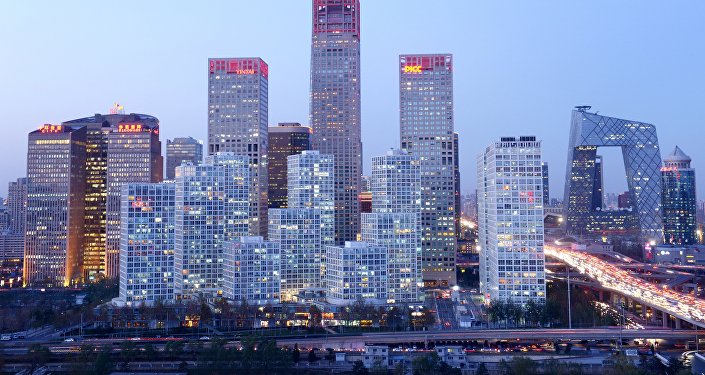
Written by Germán Gorraiz López; Originally appeared at news.newsdirectory2
Many of democratic elections in the last decade have been marked by accusations of electoral fraud (Nigeria, Ukraine, Mexico, Belarus, Honduras, Ivory Coast, Thailand, Pakistan and Afghanistan), international isolation of the democratically elected governments (Bolivia, Ecuador , Venezuela, Nicaragua and Gaza Strip); pseudo-elections to try to sweeten blows soft hand (Honduras, Ukraine, Egypt and Paraguay) and acceptance by the international community of political systems turned-mere autocratic governments (Georgia and Russia).
From this it follows that we would be in eve of the entry into the geopolitical landscape of the new world destabilizing wave caused by economic reasons (the decline of the global economy); cultural (the decline of the major Western formal democracies due to the culture of corruption, the democratic deficit in the US reflected in PRISM carried out by the Obama Administration and the loss of democratic credibility of countless governments of Western countries and Third world) and geopolitical (the emergence of a new global geopolitical scenario that will emerge after the return to recurring endemism of the Cold War between the US and Russia).
As explained by the writer Samuel Huntington in his book “the Third Wave “(Third Wave, 1.991), the world has gone through three waves of destabilization and democratization. According to Huntington, a wave of democratization would be “a set of transitions of a non-democratic regime to a democratic occurring in a given period of time and outnumber transitions in the opposite direction during that period and also involves liberalization or partial democratization of political systems. ” Thus, in the modern world would have produced three waves of democratization and each would have affected a small number of countries and during its course some transitional regimes were in an undemocratic direction; but not all transitions to democracy occur during democratic waves.
The first wave began in the nineteenth century and lasted until the Great War and the second occurred in the years after World War II and both were followed by a reverse wave, with countries such as Brazil, Spain, Portugal, Greece, Granada, Brazil and Panama that should make a subsequent transition to democracy, completed in the 90s with the democratization of the countries of the former Soviet Union and South Africa and in the XXI century by Iraq and Afghanistan.
Third wave of democratization (1974-1990)

Germán Gorraiz López
In its analysis of the third global wave transitions to democracy (begun in 1974 with the Carnation Revolution in Portugal), Samuel Huntington noted that the chances of democratization increased when these countries out of poverty and reached a socio-economic intermediate level of development, at which entered into a zone of political transition. Remember that between 1974 and 1990, more than thirty countries in southern Europe, Latin America, eastern Asia and eastern Europe increased from an authoritarian regime to enjoy a democratic system of government, all within the framework of a Global tsunami perhaps the most important political event of the late twentieth century.
According to Huntington’s thesis, this democratic sprint explain why after giving clinched the virtual dystopia of the Cold War, dictatorships military would no longer be a useful tool for the US in the fight against communism and would no longer be the solution but the problem. In addition, although in these countries there was no tradition of democratic culture, they quickly understood that if power continued to reside in an elite distrusted the egalitarian system exported by the US, always gravitate around the hegira of the interests of that elite , which preclude sine die the assumption of power by civil society. Thus, in 15 years the democratizing wave moved from Southern Europe, jumped to Latin America, he moved to Asia and Release authoritarian systems of post-Soviet countries (what would paradigm that in 1974, eight of the 10 South American countries had undemocratic governments and in 1990, 9 had democratically elected governments) and according to Freedom House, 39% of the world population lived in free countries in 1990, declining for the first time the absolute number of authoritarian states.
New world destabilizing wave?
The so-called “Arab Spring” (which had its trigger in Tunisia and spread to other Arab mimicry Mediterranean countries during the triennium 2010-2013), would be the first wave of secular and democratic protests in the Arab world in the twenty-first century, unprecedented popular movement characterized by the need for democratic freedoms against corrupt and dictatorial regimes and improving the living conditions of a population plunged into severe poverty and unemployment stratospheric, relying on the case of Tunisia and Egypt with the support of the army. With this revolution we are witnessing the arrival in the Arab Mediterranean countries of the Third World Wave transitions to democracy, although Huntington not granted in the 90s no revolutionary potential Islamic countries, despite acknowledging “force Islamic revolt and so weak roots of their respective democracies. ” However, the surprise attack by the Egyptian army against Morsi could have mimetic effect translation to Turkish and Tunisian streets of a pressure campaign against the last Islamist governments in the Mediterranean arc to achieve the intervention of the army, which We would witness the decline of the Arab spring and subsequent immersion in the new US strategy for the area after the apparent failure of the experiment export of moderate Islamist regime and pro-western Erdogan to all countries that make up the giant board Arabian arch -Mediterranean.
This strategy will be the implementation of “soft hand blows” with the clear aim of replacing Islamist regimes emerged from the polls for presidential military regimes that mimicry strategy be extrapolated to called “backyard” of the US and Russia producing an antidemocratic drip I would have to Honduras, Paraguay, Egypt, Iraq, Thailand and Ukraine as paradigms of so-called “virtual shock or post-modern” to star in the next decade in the new world geopolitical scene and which is ensañarán with Latin America (Ecuador, Panama, Bolivia, Nicaragua. Brazil and Venezuela).





